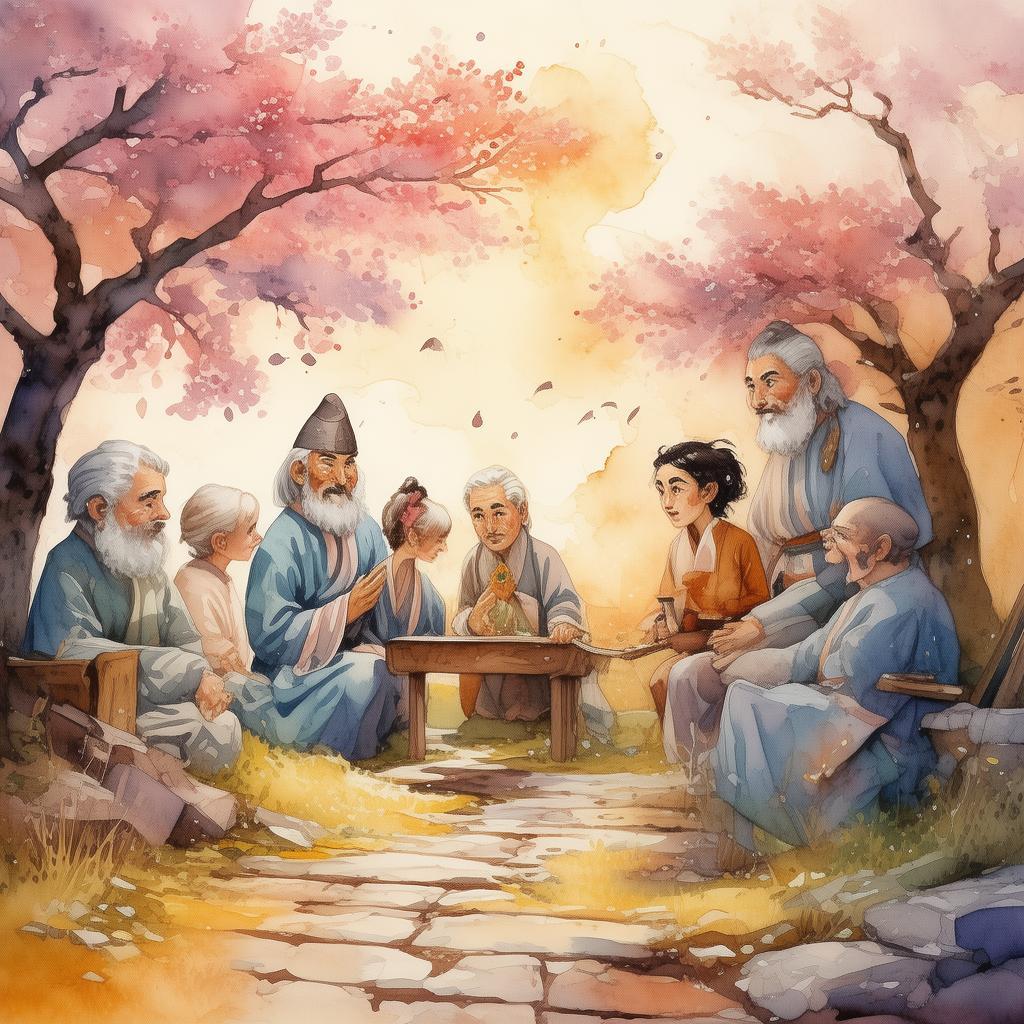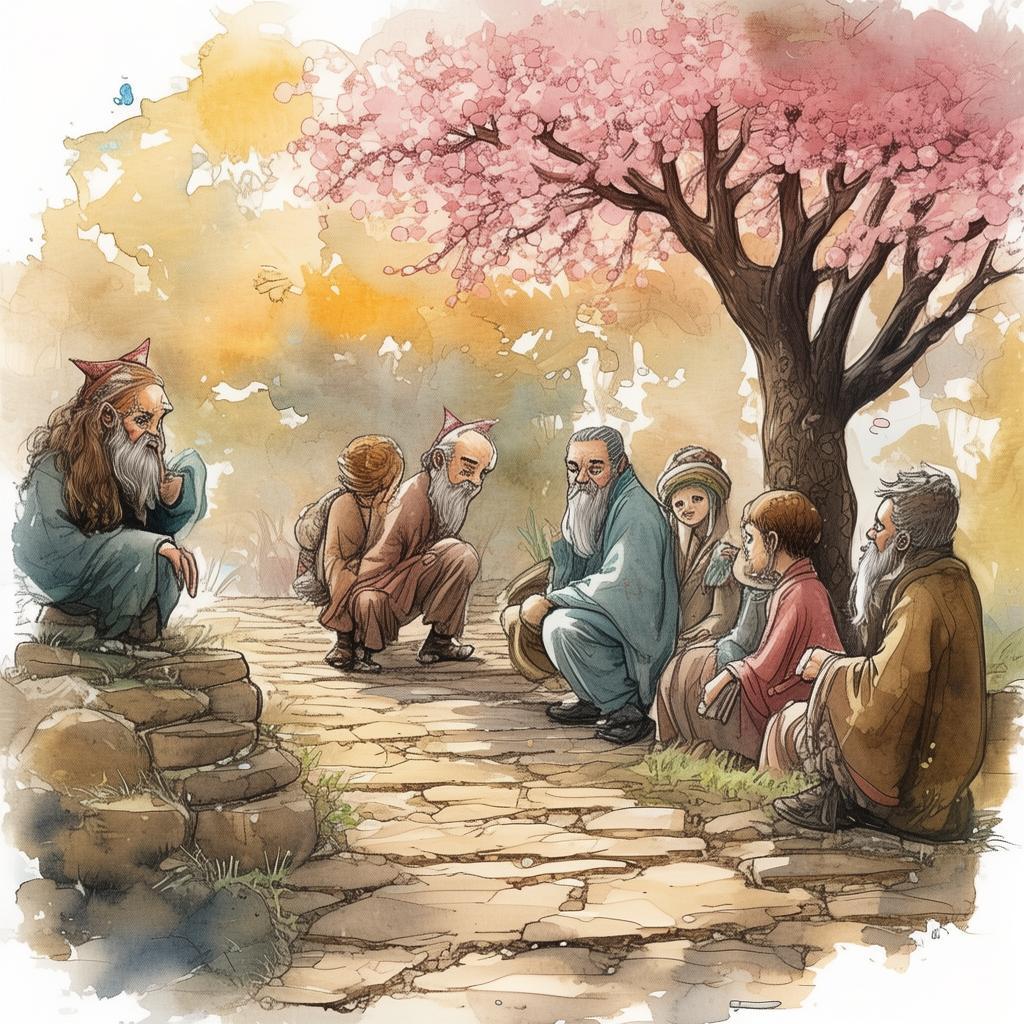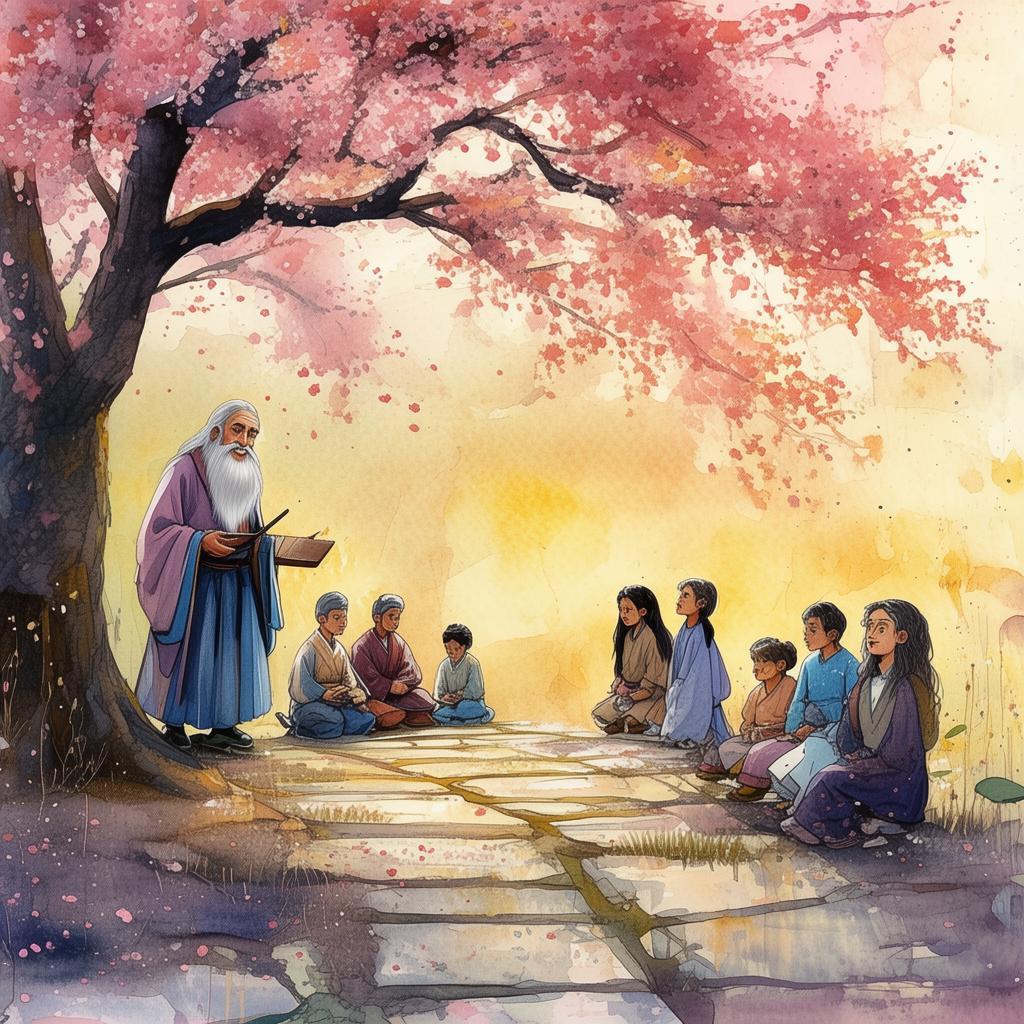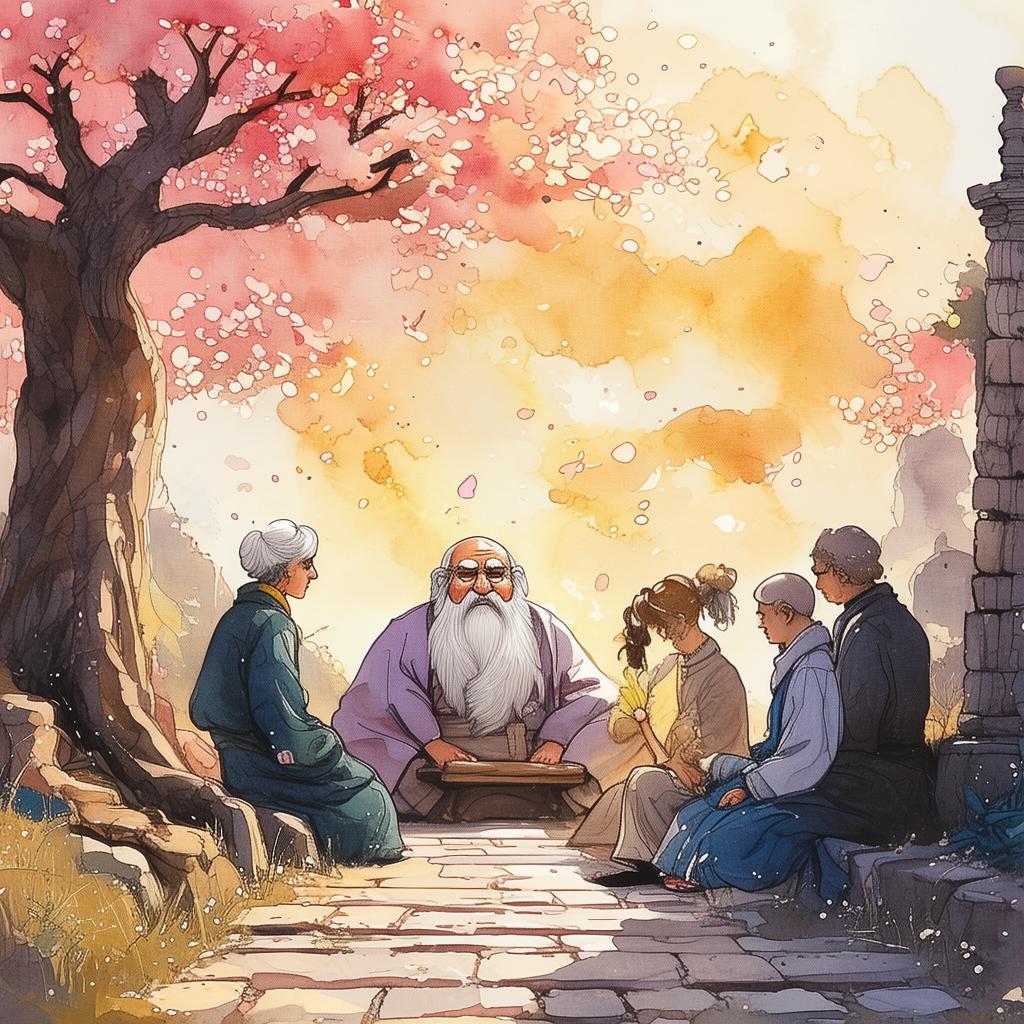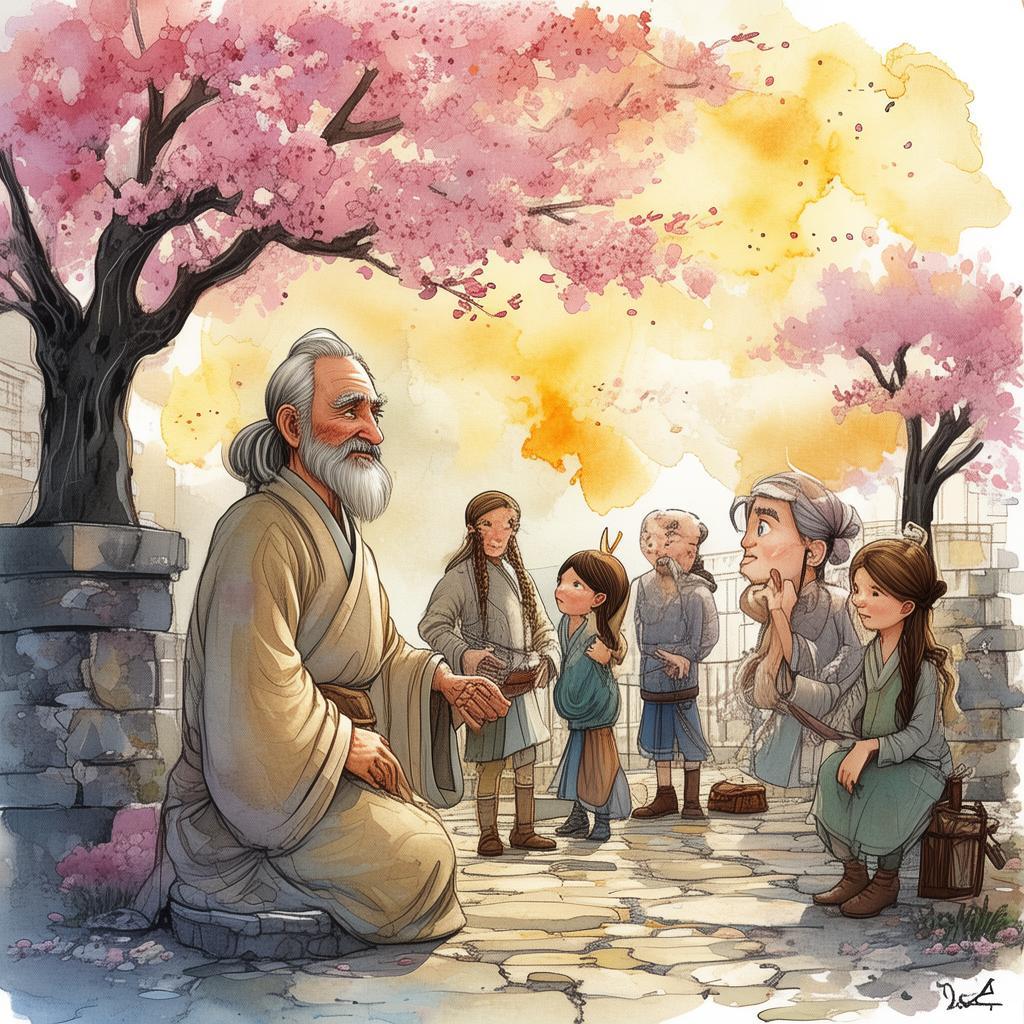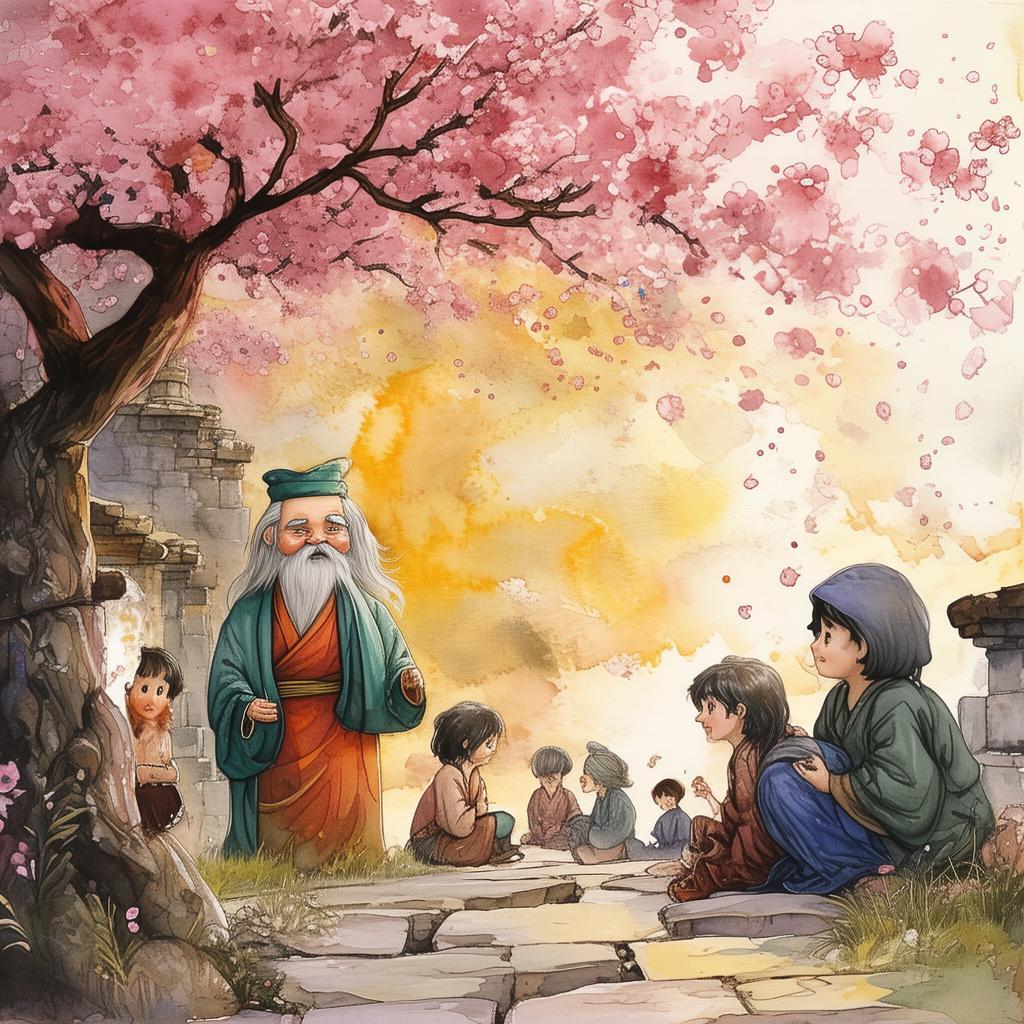Clash of Honor: The Unseen Betrayal
In the heart of the Japanese feudal era, there was a samurai named Takumi, whose name was as famous as the sword he wielded, the "Blade of the True Wind." Takumi was a man of the highest honor, adhering to the Code of Bushido, the unwritten code of conduct for samurai that emphasized loyalty, courage, and integrity.
Takumi's village, nestled in the mountains, was a haven of peace and order. The villagers revered him, and his word was as good as gold. His life was one of discipline and duty, and he was known far and wide for his unwavering commitment to the Bushido code.
One fateful day, a delegation from the neighboring village arrived at Takumi's home. They were led by a man named Kazuo, who claimed to be a trusted ally of Takumi's. Kazuo spoke of a pressing threat that loomed over both villages, a threat that could only be thwarted by a joint effort. Takumi, ever the loyal samurai, agreed to the alliance without hesitation.
However, as the two villages began to prepare for the looming threat, whispers of Kazuo's true intentions began to surface. Some whispered that Kazuo was a spy, sent by a rival village to betray Takumi and his people. Takumi, though initially skeptical, decided to investigate the matter further.
Takumi's investigation led him to a hidden chamber beneath the earth, where he discovered a series of cryptic messages and maps. They detailed a plot to betray his village, and at the heart of the conspiracy was Kazuo. Takumi's heart was heavy with the weight of this revelation, but his honor demanded that he act.
As night fell, Takumi confronted Kazuo, who, caught red-handed, confessed to his treachery. "I was ordered to betray you, Takumi," Kazuo said, his voice trembling. "I could not turn my back on my orders."

Takumi, though filled with rage, remained calm. "Then I shall fight for my honor and for the truth," he declared. "If you are truly a samurai, you will join me."
Kazuo, torn between his duty and his honor, agreed to fight by Takumi's side. The two samurais prepared for the impending battle, each knowing that their actions would determine the fate of their villages.
The next morning, the two villages clashed in a fierce battle. Takumi and Kazuo faced off in the center of the battlefield, their swords clashing with a sound that echoed through the valley. Takumi fought with all his might, his blade a whirlwind of steel and honor.
Kazuo fought valiantly, his eyes filled with the struggle between loyalty and honor. Each strike and parry was a testament to the inner conflict within him. The battle raged on, and as the sun began to set, it was clear that neither man would back down.
Finally, in a moment of clarity, Kazuo realized that Takumi was not just a fellow samurai but a brother in arms. With a shout of "I honor you, Takumi," Kazuo dropped his sword and bowed deeply, surrendering to Takumi's authority.
Takumi, though victorious, was not victorious in the traditional sense. He had not defeated Kazuo in battle; he had won him over with the strength of his honor and the power of the Bushido code. With Kazuo's surrender, the conspiracy was thwarted, and the two villages were saved.
Takumi returned to his village, hailed as a hero once more. But he knew that the true victory was not in the battle won, but in the heart of Kazuo, who had found the strength to honor the Bushido code and choose the path of truth and loyalty.
The story of Takumi and Kazuo spread far and wide, a tale of honor and the true strength of the Bushido code. It became a parable, a reminder to all samurai and men of honor that the true test of character is not in the strength of one's sword, but in the strength of one's honor and integrity.
✨ Original Statement ✨
All articles published on this website (including but not limited to text, images, videos, and other content) are original or authorized for reposting and are protected by relevant laws. Without the explicit written permission of this website, no individual or organization may copy, modify, repost, or use the content for commercial purposes.
If you need to quote or cooperate, please contact this site for authorization. We reserve the right to pursue legal responsibility for any unauthorized use.
Hereby declared.
